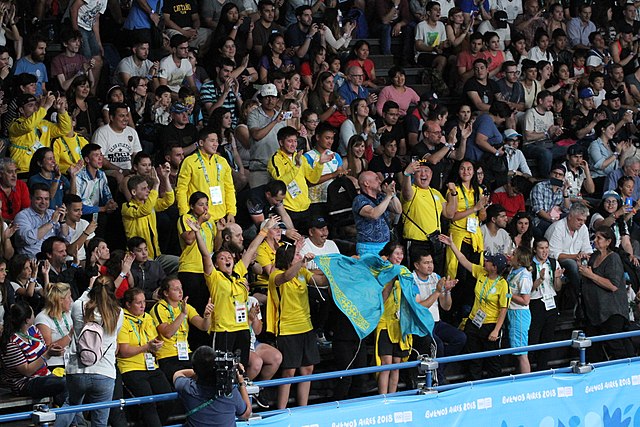
Please Follow us on Gab, Minds, Telegram, Rumble, Gab TV, Truth Social, Gettr
Energy-rich Kazakhstan – Russia’s nominal ally in the Collective Security Treaty Organization (CSTO) and the Eurasian Economic Union (EAEU) – is actively distancing itself from the Kremlin. Moscow, unable to achieve all of its strategic goals in Ukraine, will have a hard time preserving the Central Asian nation in its geopolitical orbit.
When Kazakhstan’s President Kassym-Jomart Tokayev openly told his Russian counterpart Vladimir Putin that for Nur-Sultan, the self-proclaimed Russian-backed Donetsk People’s Republic and Lugansk People’s Republic are “quasi-state territories” it became quite obvious the former Soviet republic does not intend to harmonize its foreign policy with the one of the Russian Federation. The Kremlin, isolated from the West and preoccupied with its unsuccessful so-called special military operation in Ukraine, is not in a position to force its ally to “pick a side” in the Russo-Ukrainian conflict.
Kazakhstan is, therefore, trying to preserve a neutral stance regarding the Ukraine war, and at the same time to develop close ties with Turkey, Azerbaijan, as well as with the United States. On August 10 in Tajikistan, another CSTO member, Kazakhstan, as well as Kyrgyzstan – another nominal Russian ally in Central Asia – took part in the US-sponsored military drills. Previously, on July 1, Kazakhstan’s Foreign Minister Mukhtar Tleuberdi said that his country is working on a “new stage” in its relations with the United States.
‘NO AD’ subscription for CDM! Sign up here and support real investigative journalism and help save the republic!‘
In other words, the Central Asian nation seems to continue implementing its “multi-vector” foreign policy, originally established by its former President Nursultan Nazarbayev. However, unlike Nazarbayev who was balancing between Russia, China and the West, Tokayev is expected to continue giving Moscow the cold shoulder. The very fact that Nur-Sultan decided to withdraw from the 1995 Commonwealth of Independent States (CIS) agreement on the Interstate Monetary Committee perfectly illustrates that Kazakhstan does not see its future as part of the Russian zone of influence.
Nur-Sultan has already started a process of de-russification. From now on, first-graders in Kazakhstan will study only the Kazakh language. In the past, they studied both Kazakh and Russian from the first grade. According to new rules, they will now start studying Russian and English from the second and third grades, respectively. In addition, the country plans to abandon Cyrillic alphabet and return to Latin by 2023.
Tokayev’s recent meeting with Azerbaijan’s President Ilham Aliyev was another demonstration of Nur-Sultan’s “new stage” in its relations with Moscow. During the summit in Baku held on August 24, the two leaders did not speak in Russian, but each used his own language. It was a symbolic message that the two former Soviet republics do not see themselves as part of the Russian geopolitical orbit anymore, but rather as part of a “Turkic world”.
Economically, Kazakhstan is developing close ties with Azerbaijan, aiming to export its gas and oil through the South Caucasus’ in order to bypass Russia. Presently, the energy-rich Central Asian state exports its oil to the European Union members through Russia, which makes Nur-Sultan both economically and politically dependent on the Kremlin. Kazakhstan seeks to end, or at least significantly reduce such a dependence. It is worth noting that the European Bank for Reconstruction and Development (EBRD) has recently provided Nur-Sultan with a $100 million loan to build a railway that would bypass the Russian Federation. Thus, Kazakhstan is “decoupling” from Russia in front of the Kremlin’s eyes, and there is very little Moscow can do about it.
Despite harsh anti-Kazakh rhetoric on Russian propaganda TV shows, in reality the Kremlin did not take any measures that would force its nominal ally to stop implementing such a policy. Still, it is entirely possible that Moscow has pressured Nur-Sultan not to sell weapons to Ukraine. As a result, Kazakhstan has suspended all arms exports for a year, amid unconfirmed reports that the country handed over ambulance vehicles and 20 tons of medical equipment to the Ukrainian Armed Forces. However, Nur-Sultan’s decision also means that the Central Asian country will not be selling weapons to Russia either.
For the time being, Kazakhstan will unlikely rush to halt military ties with Russia, although Nur-Sultan is expected to continue developing both military and economic relations with countries that the Kremlin sees as “unfriendly”. From the economic perspective, Kazakhstan’s “decoupling” from Russia has become very visible back in March when Timur Suleimenov, the First Deputy Head of the Presidential Administration, stated that the Central Asian nation “will not be a tool to circumvent the sanctions that the European Union has imposed on Russia.” Reports suggest that Nur-Sultan does not participate in the re-export of goods that cannot be imported into Russia due to Western sanctions, which means that Kazakhstan does not help Moscow evade sanctions.
Nur-Sultan, quite aware that Russia is becoming a pariah state, will almost certainly continue to distance itself from the Kremlin. Unless Russia manages to turn the situation around, and find a way to win the war in Ukraine – which is extremely unlikely to happen – Kazakhstan will not be the only Russian ally that is turning its back on Moscow. Sooner or later, other CSTO and EAEU members will start to follow in Nur-Sultan’s footsteps, which will lead to a cooling of relations between them and Russia.
- BOOK REVIEW: How The West Brought War To Ukraine
- The Only Thing That Will End War In Ukraine, Bring World Peace, Is Donald Trump Back In The White House

